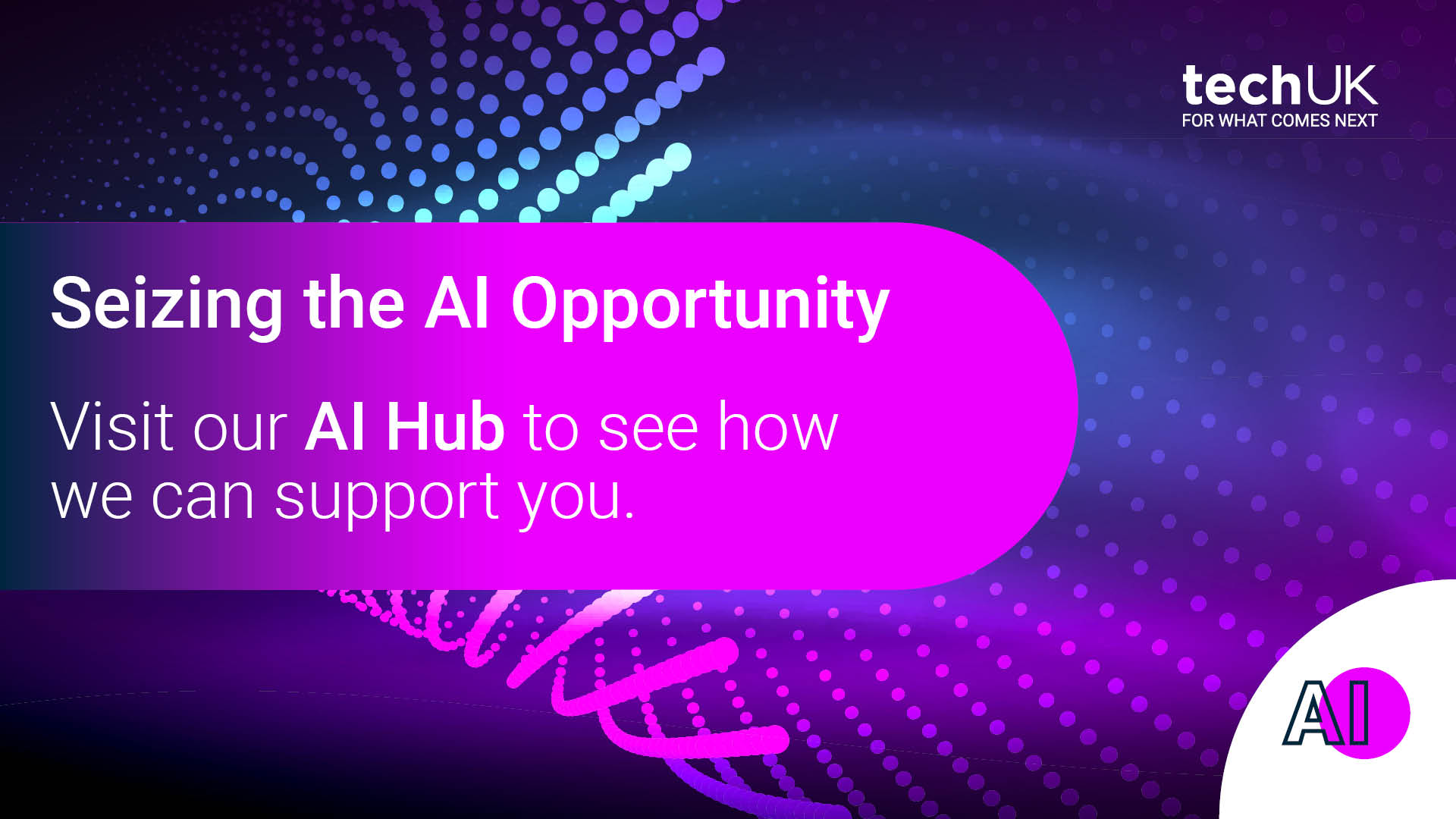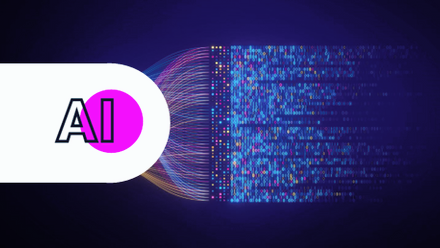Navigating the AI revolution: what are the tech careers of tomorrow?
Rapid developments in technology like Artificial Intelligence (AI) are reshaping the world of work. The types of jobs comprising the labour market are evolving and many of the jobs of the future are yet to be invented. But in the midst of National Careers Week, what does that mean for the careers of the future? This article explores just some of the tech jobs that might characterise the future of work.
Jobs that are enabled by AI
In an increasingly AI-enabled world, those people with the skills and expertise required to drive AI innovations will be invaluable. According to the World Economic Forum, over the coming years AI and machine learning (ML) specialist roles are set to grow by 40%, whilst the role of data specialists is expected to grow too with a 30-35% increase in demand for data analysts, scientists and big data specialists. These professionals will be equipped to develop AI and ML solutions, analyse and interpret data, and bridge the gap between technology and business.
But commercialising AI and driving its adoption across sectors will require multi-skilled teams, well-versed in enabling and complementary technologies. That includes data centres engineers, building and maintaining the digital infrastructure needed to deploy AI, the cloud experts and engineers building accessible tools and providing access to computing power, the cybersecurity professionals ensuring that these AI systems are secure as they proliferate, and digital transformation experts driving these innovations within organisations.
Jobs that will be enabled by AI
As AI matures, it will develop alongside other emerging technologies and increasingly change jobs across almost every sector. In many, it will be a key technology to power more effective and productive work, underpinning new innovations and converging with other technologies to deliver impact. The ability to work with, on or alongside emerging technologies like advanced AI, and handle data, will therefore be critical for a growing number of jobs.
Take Augmented Reality (AR) and Virtual Reality (VR), collectively known as ‘immersive technologies’ . Data from Experis ManpowerGroup found that over half of UK employers expect immersive technologies will lead to them employing more staff, including developers and designers who can create 3D models and environments. Immersive technologies begun transforming training and learning, providing more engaging experiences, and their symbiosis with AI could provide new powerful applications and subsequent job opportunities. This could be by using AI to better understand users’ surroundings, provide adaptive and personalised content, or power complex simulations, in sectors as diverse as education, tourism, healthcare or gaming.
Or the case of autonomous vehicles and robotics, where AI algorithms and the internet of things are helping to process vast amounts of data from a web of connected sensors to make real-time decisions. Building and maintaining these innovations are likely to create jobs in engineering and technical roles across a number of sectors. At the same time, some of these opportunities could combine with work to create smart cities and spawn a growing number of roles in planning and IT management.
Smart cities hold great promise for the net zero transition, with expected changes in the labour market too. AI is already assisting the collection and analysis of critical data on things like emissions, operational function, and energy supply and demand. Estimates put the number of potential net new jobs as between 135,000 and 725,000, and the net zero economy grew by 9% in 2023. This transition will entail not only ‘greening’ existing jobs like software development or manufacturing, but also creating new jobs focused on things like renewable energy, electric batteries and vehicles, and the circular economy.
And in healthcare new technologies like AI will increasingly help medical professionals diagnose illnesses, monitor patients and track their care. In an AI future, personal care facilitated by healthcare staff will be hard to replace, but it will be augmented. We could therefore see the emergence of AI nurses, equipped with the AI, data and soft skills that enable this technology and its insights to provide more effective care.
The future of technology careers
Developments in AI, and other emerging technologies like AR and VR, will underpin many of the careers of the future – whether in traditionally digital roles or not – and this article has explored but a few. We will see existing roles become AI-enabled, whilst entirely new jobs will be created, and nascent sectors such as emerging space technologies will mature too.
Digital skills are already key for most workers, but their importance will only grow in an AI-enabled future. So, if you’re thinking about your future career, then you should probably be thinking about tech too.
If you're interested in discussing techUK's Future of Work activity, please get in touch:

Jake Wall
Jake has been the Policy Manager for Skills and Future of Work since May 2022, supporting techUK's work to empower the UK to skill, attract and retain the brightest global talent, and prepare for the digital transformations of the future workplace.
techUK - Seizing the AI Opportunity
The UK is a global leader in AI innovation, development and adoption.
AI has the potential to boost UK GDP by £550 billion by 2035, making adoption an urgent economic priority. techUK and our members are committed to working with the Government to turn the AI Opportunities Action Plan into reality. Together we can ensure the UK seizes the opportunities presented by AI technology and continues to be a world leader in AI development.
Get involved: techUK runs a busy calendar of activities including events, reports, and insights to demonstrate some of the most significant AI opportunities for the UK. Our AI Hub is where you will find details of all upcoming activity. We also send a monthly AI newsletter which you can subscribe to here.
Upcoming AI Events
Latest news and insights
Subscribe to our AI newsletter
AI and Data Analytics updates
Sign-up to our monthly newsletter to get the latest updates and opportunities from our AI and Data Analytics Programme straight to your inbox.
Contact the team
Visit our AI Hub - the home of all our AI content:

Enquire about membership:












